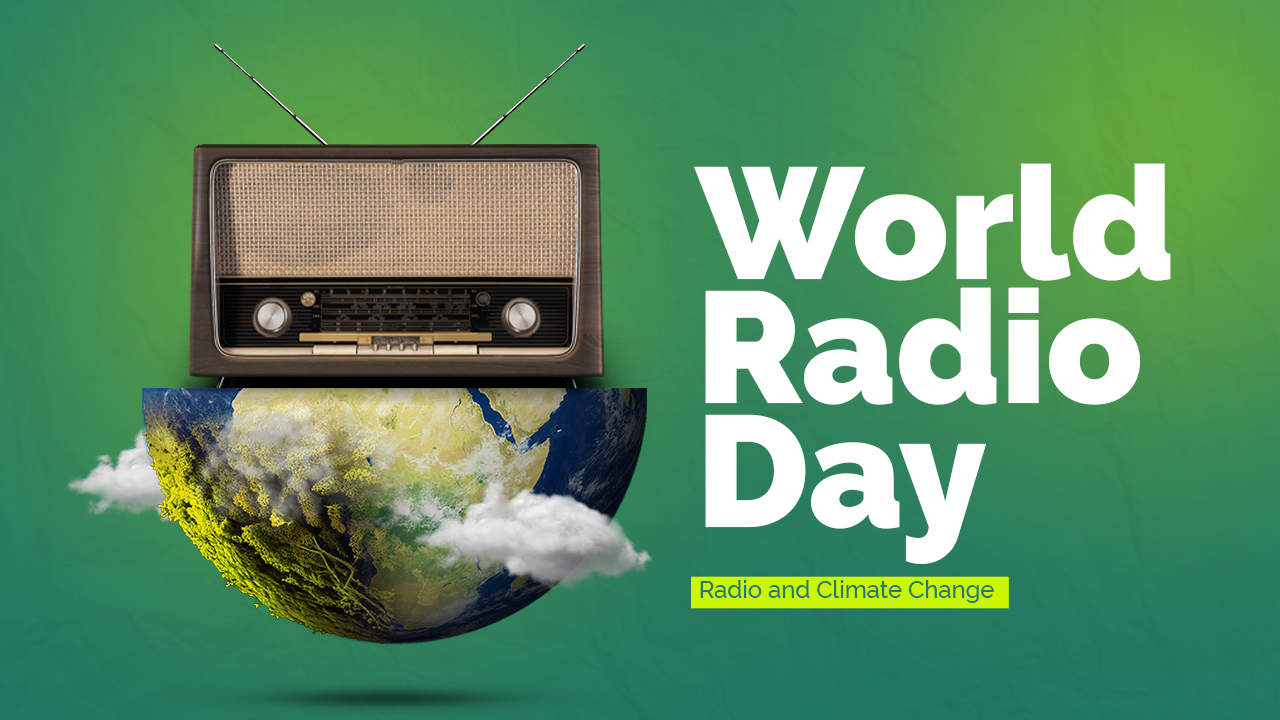Globally, radio remains the most widely consumed media. It is the leading source of news and information in Africa where, per an April 2024 survey by Afrobarometer, 65% of Africans depend on radio for their informational needs.
The power and utility that radio commands naturally positions it as a vanguard for social mobilization. This is especially true for community radios which serve as platforms for everyday people to be part of global conversations such as climate change.
In West Africa, where communities continue to face disproportionate existential threats from climate change, radio’s power remains indispensable for galvanizing people for climate action.
However, radio as a medium is only as powerful for climate action as the quality of the freedoms enjoyed by the journalists who work with it to inform, educate, and entertain. As the world commemorates the 2025 Radio Day under the theme: Radio and Climate Change, the stark reality we are forced to acknowledge is that West Africa’s environmental journalists, including those who work in radio, continue to operate in hostile environments.
In October 2024, the Media Foundation for West Africa (MFWA) hosted a webinar for environmental journalists in West Africa who collectively shared the serious threats they face in their line of work. These threats range from physical, verbal, and legal harassment.
Environmental journalists also frequently suffer violent attacks over their work with the perpetrators often enjoying impunity.
The plight of the West African journalist, whether in radio or other forms of mass media, demands that stakeholders are more concerted in their efforts to make the civic space freer.
As a major stakeholder, the MFWA has already been acting – in 2022, the Foundation held the inaugural edition of a Fellowship on climate change journalism, adding to its series of investigative journalism fellowships. The cohort consisted of ten (10) environmental journalists from ten (10) West African countries who were empowered with skills in investigative reporting on climate change.
In November 2024, the Foundation hosted an environmental journalism Fellowship for journalists in Ghana and later in December, held trainings on Forest Management, Carbon Market, and Revenue Mobilization for journalists.
Also, in response to persistent legal harassment of journalists in West Africa, particularly by powerful individuals, organisations and state actors, the MFWA set up a network of defense lawyers to provide legal assistance to victims who are persecuted over their work.
Known as the West Africa Network of Activists and Media Defence Lawyers (WANAMDEL), the group is made up of fourteen (14) lawyers from eleven (11) West African countries who are available on call, to offer legal assistance to journalists and activists who face legal harassment over their work.
Additionally, the MFWA, through its accountability journalism project, The Fourth Estate, has been inspiring climate action through publications that put environmental issues, in focus.
As the globe continues to get warmer due to climate change, and the clock ticks for humanity to act, we must mobilize, and radio remains one of the most important assets to inform, educate and mobilize stakeholders and society at large for climate action.
In West Africa, such a push will require deconstructing the hostile environments that environmental journalists work in. On the occasion of the 2025 commemoration of World Radio Day therefore, the MFWA renews its call on stakeholders, especially governments, to recommit to greater press freedom for all journalists, including environmental journalists who work in radio.






